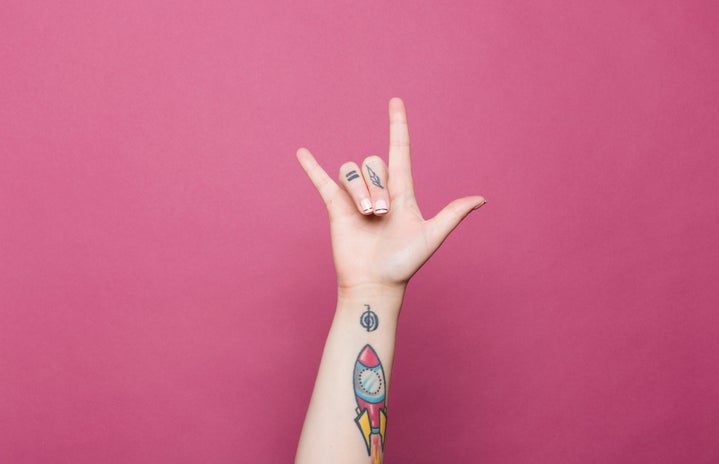One thing I’ve been fascinated about for a while is instant tattoos. Instant tattoos aren’t permanent, they are like stickers that eventually come off in a week or two. I’ve always been interested in tattoos themselves but never had the courage to actually “ink” myself. That’s when I came across instant tattoos and decided to try it out. Of course, I wanted to try instant tattoos because I thought they were cute and artsy, but I was also interested in how people would react when they saw my tattoo, especially in a country with a perception of tattoos being bad.

From my one-week experience with a tattoo, I realized that people stared at me a lot. I remember entering a clothing store and felt the eyes of every store clerk on my collar bone. Even when it came to people I know, some friends would point out my tattoo and ask about it, but others would stare at it, more than once, but wouldn’t say anything. It might just be that they don’t really care if I have a tattoo or not, but it felt as though talking about tattoos is a sensitive topic and should not be discussed. Honestly, it did feel a bit uncomfortable when people stared at my tattoo, especially when they didn’t point it out, since it felt like I was doing something wrong.

But why are tattoos seen as a taboo in the first place? In Japan, tattoos are often associated with yakuza and criminal outlaws. This negative perception of tattoos dates back to the Edo period when the government used tattoos to mark criminals of their crimes. After the war, tattoos or wabori (和彫り) became popular amongst gangsters and the yakuza. This tattoo history may have caused many Japanese to have an uninviting impression of tattoos. Although these negative perceptions still influence our perspectives, more people show less prejudice towards tattoos these days, thanks to globalization and the West’s influence.
Tattoos can be a great form of self-expression. Some get tattoos as a reminder of a good memory or their loved ones. Others have it as a good luck charm. The art of tattoos can help embrace a person’s passion and identity. In that sense, instant tattoos aren’t permanent, but changing tattoo styles depending on our mood can be a new accessory to boost our motivation. Why not express ourselves through tattoos?



